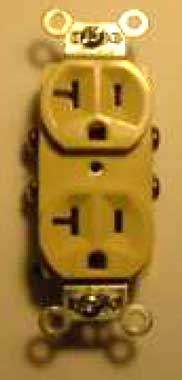Your electricity runs behind the scenes, inside the walls of your home, allowing you a great variety of modern creature comforts. However according to the National Fire Protection Association (NFPA), electrical problems are the largest cause of property damage in home structure fires across the U.S. In addition, the United States Consumer Product Safety Commission (CPSC) identifies small appliances plugged into inadequate or improper home wring as the leading cause of accidental electrocutions. These safety hazards can be easily addressed and prevented with an electrical home inspection.
What is an electrical home inspection?
An electrical home inspection provides a thorough examination of your entire electrical system, ensuring all electrical wires, systems, and components, such as appliances in your home, meet legal safety standards. The National Electrical Code (NEC) is the code that all electricians operate under when examining your home, and defines the parameters for minimum standards across the United States. Upon completion of your electrical home inspection, a Mr. Electric® inspector will provide a detailed, prioritized, checklist including areas in need of immediate attention, recommendations for improvements, and potential upgrade possibilities.
•When purchasing a home.
•When a home is 40 years or older.
•When adding an appliance.
•When a home has had a major renovation.
•Ensuring the safe operation of electrical components in your home.
•Identifying common electrical mistakes made by contractors and previous DIY homeowners.
•Recognizing outdated wiring such as aluminum or knob and tube.
•Identifying electrical wiring and components that may have degraded over time.
•Spotting oversized fuses or breakers that could lead to fire.
•Allowing for the correction of fire and safety hazards.
•Helping you save energy and reduce costs.
•Meeting insurance risk assessment inspections requirements.
•Letting you know the electrical in a new home is safe before you purchase it.
•Verification of proper light bulb wattage.
•Switch and wall outlet operation and condition.
•Shock or electrocution hazards.
•Verification arc fault circuit interrupters (AFCIs) are operating properly.
•A check of all safety and security lighting.
•Confirmation of grounding systems.
•Validation of appropriate surge protection.
•Verification of the proper placement of smoke detectors.
•Testing of smoke detectors.
•Testing of carbon monoxide detectors.
•Inspection of the electrical panel for appropriate labels, amps, and operation.
•An examination of outdoor electrical systems.
•A detailed, prioritized report on all areas of attention concerning the electrical system of your home.

